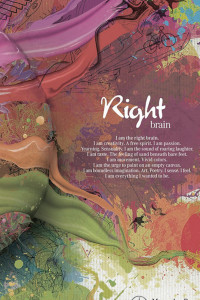Finishing a novel can have many benefits, but can it also increase your happiness? Even though there is a stereotype of artists, including writers, as tortured, unhappy souls, there are plenty of ways that finishing your book can make you a happier person:
Writing leads to flow which leads to happiness
Flow is a term that refers to that sense you get when the writing is going well. People who are in a state of flow are not just more productive but are also happier. You won’t achieve flow on every day that you work on your novel, but you will get there on some days.
One of the key components for achieving flow is focusing on a single task, so while it’s sometimes important for reasons of productivity to try to fit writing in while you are doing other things, it’s also important to give yourself some quiet stretches of time of an hour or more to just fall into the world of your novel. When flow is added to the achievement of something as big as completing a novel, your happiness is likely to increase.
Creativity makes us happy
In addition to the positive benefits of flow, many studies have shown that when people express themselves creatively, they are happier. As for the link between creativity and mental illness, some experts point out that it is not the creativity itself but the reflection that comes with creativity that can create mental stress. However, creativity and reflection may also help to fight depression, and some studies have found that journaling can be as helpful as therapy in many cases. Writing a novel is not the same thing as journaling, but it does involve expressing oneself creatively and has the added benefit of providing measurable progress with a big sense of accomplishment at the end.
There is also something inherently satisfying in the act of creating something, and when that something is a book, it is a document about things you felt and thought. It does not matter that you are not the subject of the book; it is still a unique document that no one but you could have made, and unlike many other acts of creation, it has allowed you to develop an entire world and perhaps put forth an important personal philosophy. This can be profoundly rewarding.
Writing is often healing
There is a fair amount of research on the therapeutic value of writing, and although it generally focuses on expressive writing as opposed to fiction writing, some of the same principles apply. Writing can offer benefits that include better communication and helps to maintain cognitive skills as a person ages. While studies have been mixed on demonstrating how well expressive writing about traumatic situations helps a person, it may well be that channelling strong emotion through writing can be helpful by helping a person examine those emotions through the lens of fiction rather than focusing directly on the trauma.
Writing can also be therapeutic because it allows us to carve out a space that is only for us. In a life that may seem full with work, family and other obligations, writing is a place that we can go to where we do something that is primarily for ourselves. Even when it is frustrating and difficult, it belongs to us.
Achieving our goals makes us happy
Many happiness studies show that happiness is something better arrived at via indirect means. In other words, rather than deciding to “be happy,” it is important to find activities that make us feel challenged and engaged, and that leads to happiness. Setting out to do something difficult and accomplishing that thing makes us happier whether it’s climbing a mountain, starting a business, completing a challenging course or writing a novel. Furthermore, for many people, completing a novel is a particularly important milestone because it represents fulfilment of a lifelong dream.
Achieving a goal such as finishing as novel has another effect that adds to happiness:
Mastering writing craft increases confidence
Accomplishing a difficult task is a huge confidence-builder, and increased confidence also makes people happier. This confidence can enhance both your writing and your non-writing life. A lack of confidence in your writing can be stressful and upsetting. The act of finishing the novel itself is not the only confidence-builder. In completing a novel, you also will have learned a great deal about the craft of writing and developing your own voice.
The confidence gained can carry over into other aspects of your life as well. Some challenges will simply seem less daunting in the face of having written an entire novel.
Writing improves our communication skills
Human beings are social animals, and we feel happy when we communicate with others. Not all writers write to be read by others, but most do, and even those who say they write for themselves often do so in the hope that others will enjoy and relate to what they have written. It can make us very happy when we write something that touches another person. Writing a novel that others want to read also makes us feel like we have left our mark in some way. It is natural to want to leave something of ourselves behind in the world, and a novel may not be ephemeral; it might even turn out to be something that outlasts us and continues to speak to people after we are gone. This idea can also be very gratifying for some writers.
We experience awe doing something extraordinary
When we are immersed in novel writing and talking to other writers all the time, writing a novel might not seem like such an extraordinary thing. This is true for any other similar endeavour; if we are training for a marathon, for example, we might be surrounded by other people who are doing the same thing and reading forums and other material online and offline about running. However, if you take a step back, you’ll realise that what you have done is really extraordinary. Think about how many people you have met throughout your life who say that they want to write a novel someday. Few of them do, but when you are finished, you will be one of those few.
Storytelling is good for us
Research suggests that human beings are hardwired to listen to and tell stories. It is one of the most natural ways that we communicate with one another, and furthermore, storytelling appears to stimulate the brain.
Humans are naturally drawn to tell stories to explain the world around them, and fiction has been demonstrated to create greater empathy in people. It seems that humans learn better through storytelling. Storytelling may be linked to evolutionary survival traits in that people who were told about dangers through stories were more likely to remember the warnings. Both telling and reading stories can also provide a powerful form of escapism.
Therefore, stories serve a dual purpose. They both help us engage with the world and give us a break from the world. And just as many readers are at their happiest while reading, the same can be said of writers:
Most writers are happiest when writing
Irish writer Alison Jameson points out that while many writers feel compelled to write, writers also tend to feel happiest when they are doing so.
There seems to be something about novel writing that provides us with a deep and profound sense of fulfilment even at the most difficult times. Sometimes, like many things that are difficult, the happiness comes after the task itself. Occasionally, some will make a snide remark about people who “don’t want to write, but want to have written,” yet this applies to most of us at one time or another. Sometimes, the work of putting the words down on paper or trying to make sense out of the story we have in our heads can feel agonizing, but the end result is still exhilarating.
Writing can be frustrating, infuriating, discouraging and difficult, but it can also be rewarding. It can be a path to happiness. Creativity and self-expression have both been shown to have therapeutic properties, and writing a novel also provides a sense of having done something momentous. Doing so may even be one of the major accomplishments of a person’s life.
We often talk about an avocation, an activity we are passionate about, as separate from the job that we do or vocation. For most writers, writing is an avocation even when it is a vocation as well, and for many writers, even when the writing is a struggle, having long stretches of not writing is a sure path to unhappiness.
What is one way that writing a novel has made you happier?




2 replies on “Writing a novel: Why it will increase your happiness”
Found your article Bridget as I’m researching this very topic for an upcoming book on writing inspiration and you brilliantly capture all the many ways writing fiction makes me happy, so thank you for summarising it so well.
Hi Frankie, it’s a pleasure! Sounds like a great book. All the best for writing it.